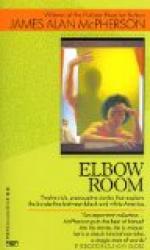It is a song that ought to be studied and glorified in print. Think what a history it has! That identical combination of sounds which wakes and maddens the sleeping citizen of to-day was heard by Noah and his family with precisely the same cadence and accent in the ark. It was that very crow that Peter heard when he had denied his Master. It is a crow that has come down to us from Eden almost without a moment’s intermission. It is a crow which has passed round the world century after century, and now passes, as the herald of the coming of the sun. It may yet be made the theme of a majestic musical composition, now that Wagner has come to teach men how to build a lyric drama upon a phrase. Perhaps the coming American national song may have this familiar crow for its inspiration and its burden. We might do worse, perhaps, than to take the rooster for our national bird, even if we reject his song as the basis of our national anthem. We took our eagle from Rome, as France did hers; would it not have been wiser if we had taken the cock instead, as France did after the Revolution? The Romans and Greeks regarded the cock as a sacred bird. The principal thing that the average school-boy remembers about Socrates is that he killed himself immediately after ordering that a cock should be sacrificed to Aesculapius; and some have held that the reason of his suicide was the vociferousness of the cock, which he wanted to kill in revenge for the misery it had caused him while he was trying to sleep or to think.
[Illustration: THE EARLY COCK]
The cock is a braver bird than the eagle. He has ever been a bold and ready warrior, and has worn a warrior’s spurs from the beginning. He has one high soldierly quality: he knows when he is whipped; for who has not seen him, when defeated in a gallant contest, sneak away to a distant-corner to stand, with ruffled feathers, upon a single leg, the very picture of humiliation and despair? And he is vigilant, for has he not for ages revolved upon church-steeples as the emblem of watchfulness? He has the homelier virtues. He is a kind father and a fond as well as a multitudinous husband. He knows how to protect his family from errant and disreputable roosters, and he is always willing to stand aside with unsatisfied appetite and permit them to devour a dainty he has found. He is useful and admirable in his relation to this world, and he is not without value to the next, for popular belief has credited him with the office of warning revisiting spirits to retire from the earth; and when he crows all through the night, the Katie Kings and other ghostly persons who come from space to rap upon tables and evoke discordant twangs from guitars are deaf to the seductive entreaties of the mediums. When
“This bird of dawning singeth all
night long,
... then they say no spirit dares stir
abroad.”




